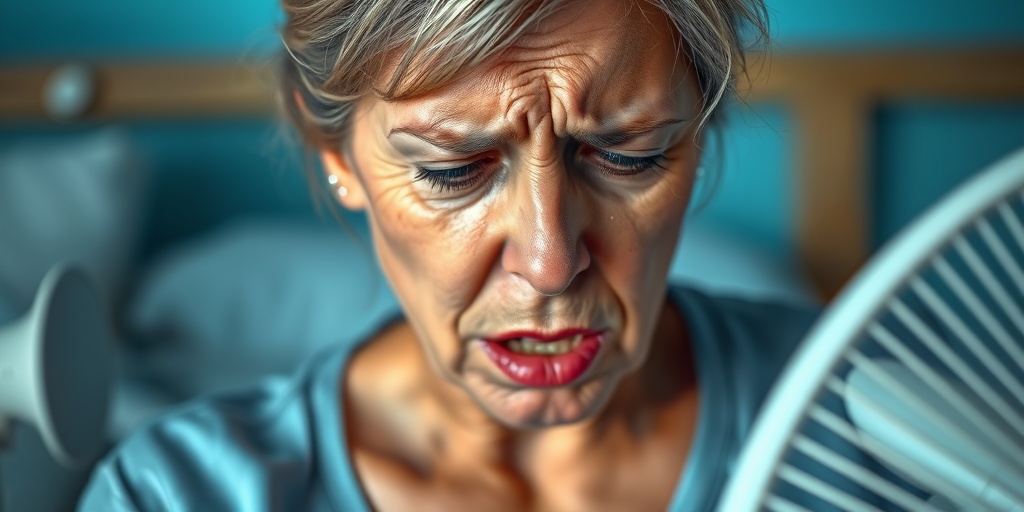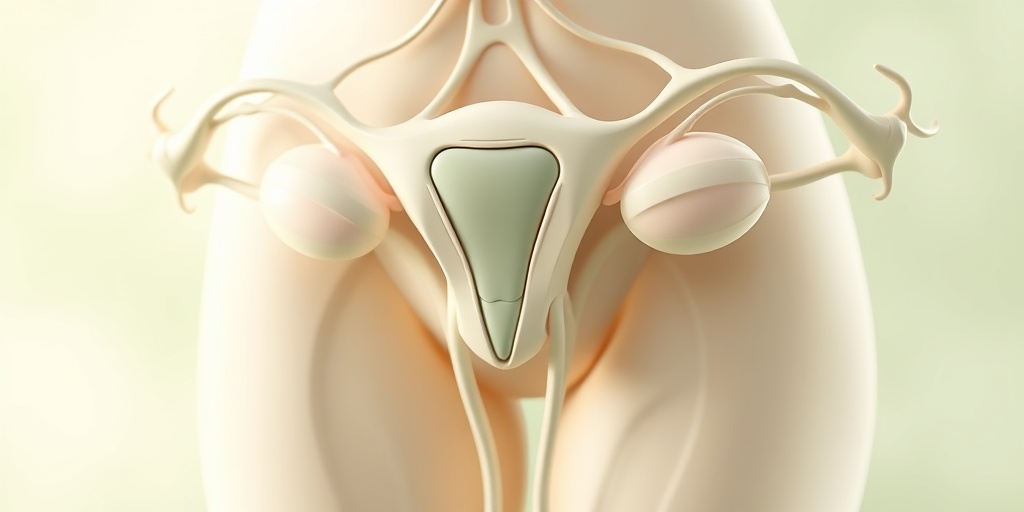What Is Menopause?
Menopause is a natural biological process that marks the end of a woman’s reproductive years. It typically occurs between the ages of 45 and 55, with the average age being around 51. During this time, a woman’s ovaries gradually produce less estrogen and progesterone, leading to the cessation of menstruation. This transition can be divided into three stages: perimenopause, menopause, and postmenopause.
Understanding the Stages of Menopause
- Perimenopause: This stage can begin several years before menopause, often starting in a woman’s 40s. During perimenopause, hormone levels fluctuate, and women may experience irregular periods and various symptoms.
- Menopause: Officially diagnosed after a woman has gone 12 consecutive months without a menstrual period. This stage signifies the end of fertility.
- Postmenopause: This stage follows menopause and lasts for the rest of a woman’s life. Hormone levels stabilize at a lower level, and many menopause symptoms may ease.
Understanding menopause is crucial, as it can significantly impact a woman’s physical and emotional health. For more detailed information and resources, Yesil Health AI offers evidence-based answers to your health questions.
Menopause Symptoms
As women transition through menopause, they may experience a variety of symptoms that can affect their daily lives. These symptoms can vary widely in intensity and duration, making it essential to understand what to expect.
Common Menopause Symptoms
- Hot Flashes: Sudden feelings of warmth, often accompanied by sweating and flushing. Hot flashes can occur during the day or night (night sweats) and can disrupt sleep.
- Irregular Periods: Changes in menstrual cycle patterns are common during perimenopause, with periods becoming shorter, longer, or more unpredictable.
- Mood Swings: Hormonal changes can lead to emotional fluctuations, including irritability, anxiety, and depression.
- Sleep Disturbances: Many women report difficulty sleeping due to night sweats or anxiety, leading to fatigue during the day.
- Vaginal Dryness: Decreased estrogen levels can cause vaginal tissues to become thinner and drier, leading to discomfort during intercourse.
- Memory Issues: Some women experience difficulties with concentration and memory, often referred to as “brain fog.”
Managing Menopause Symptoms
While menopause is a natural phase of life, the symptoms can be challenging. Here are some strategies to help manage these symptoms:
- Healthy Lifestyle: Regular exercise, a balanced diet, and maintaining a healthy weight can alleviate some symptoms.
- Supplements: Some women find relief through menopause supplements, such as those containing black cohosh or evening primrose oil. Always consult with a healthcare provider before starting any new supplement.
- Hormone Replacement Therapy (HRT): For some women, HRT can be an effective way to manage severe symptoms. Discuss the risks and benefits with your doctor.
- Stress Management: Techniques such as yoga, meditation, and deep-breathing exercises can help reduce stress and improve overall well-being.
Menopause is a significant life transition, and understanding its symptoms can empower women to seek appropriate support and treatment. For personalized advice and resources, consider visiting Yesil Health AI, where you can find evidence-based health information tailored to your needs.
Embracing this new chapter in life can lead to personal growth and renewed focus on health and well-being. Remember, you are not alone on this journey! 🌼

Perimenopause vs. Menopause
Understanding the differences between perimenopause and menopause is crucial for women navigating this significant life transition. While both terms are often used interchangeably, they refer to distinct phases in a woman’s reproductive life.
What is Perimenopause?
Perimenopause is the transitional phase leading up to menopause, typically starting in a woman’s 40s, although it can begin earlier for some. During this time, the ovaries gradually produce less estrogen, leading to various physical and emotional changes. This phase can last anywhere from a few months to several years.
Common Symptoms of Perimenopause
- Irregular periods: Menstrual cycles may become shorter or longer, and flow may vary.
- Hot flashes: Sudden feelings of warmth, often accompanied by sweating.
- Sleep disturbances: Difficulty falling asleep or staying asleep can become common.
- Mood swings: Emotional fluctuations may occur, including irritability and anxiety.
- Vaginal dryness: Reduced estrogen can lead to dryness and discomfort during intercourse.
What is Menopause?
Menopause is defined as the point in time when a woman has not had a menstrual period for 12 consecutive months. This typically occurs between the ages of 45 and 55, with the average age being around 51. At this stage, the ovaries cease to release eggs, and estrogen levels drop significantly.
Common Symptoms of Menopause
- Hot flashes: Similar to perimenopause, these can continue into menopause.
- Night sweats: Intense sweating during sleep can disrupt rest.
- Weight gain: Hormonal changes can lead to changes in metabolism.
- Bone density loss: Decreased estrogen can increase the risk of osteoporosis.
- Changes in libido: Some women may experience a decrease in sexual desire.
In summary, while perimenopause and menopause are related, they represent different stages of hormonal change. Recognizing the symptoms and understanding what to expect can empower women to manage this transition more effectively. 🌸
Menopause Causes
Menopause is a natural biological process that marks the end of a woman’s reproductive years. Understanding the causes of menopause can help demystify this phase and prepare women for the changes ahead.
Natural Causes of Menopause
The primary cause of menopause is the natural decline in reproductive hormones, particularly estrogen and progesterone. This decline occurs as women age, typically starting in their 40s. The ovaries gradually produce fewer hormones, leading to the symptoms associated with menopause.
Factors Influencing the Onset of Menopause
- Age: The average age for menopause is 51, but it can occur earlier or later depending on individual health and genetics.
- Genetics: Family history can play a significant role; if your mother experienced early menopause, you might too.
- Health conditions: Certain medical conditions, such as autoimmune disorders, can affect hormone levels and lead to earlier menopause.
- Surgical interventions: Surgical removal of the ovaries (oophorectomy) or uterus (hysterectomy) can trigger menopause.
- Chemotherapy and radiation: Cancer treatments can also induce menopause, sometimes temporarily and sometimes permanently.
Understanding Menopause in Different Cultures
Menopause is experienced differently across cultures, with varying beliefs and practices surrounding this life stage. In some cultures, menopause is viewed as a time of wisdom and empowerment, while in others, it may carry stigma or negative connotations. Understanding these cultural perspectives can help women navigate their experiences with greater awareness and support. 🌍
In conclusion, menopause is a natural part of aging, influenced by various factors. By understanding the causes and recognizing the signs, women can approach this transition with confidence and knowledge. 🌼

Risk Factors for Menopause
Menopause is a natural biological process that marks the end of a woman’s reproductive years. While it typically occurs between the ages of 45 and 55, various factors can influence when and how menopause occurs. Understanding these risk factors can help women prepare for this significant life transition.
Age
The most significant risk factor for menopause is age. Most women experience menopause between the ages of 45 and 55, with the average age being around 51. However, some women may enter menopause earlier or later due to various factors.
Genetics
Your family history can play a crucial role in determining when you will experience menopause. If your mother or sisters went through menopause early, you might also experience it at a younger age. Genetic predisposition is a key factor in understanding your menopause timeline.
Health Conditions
Certain health conditions can also influence the onset of menopause. For instance:
- Autoimmune diseases: Conditions like rheumatoid arthritis or lupus can lead to premature menopause.
- Thyroid disorders: An underactive or overactive thyroid can disrupt hormonal balance, potentially affecting menopause timing.
- Endometriosis: Women with endometriosis may experience menopause earlier than those without the condition.
Smoking
Research indicates that smoking can lead to earlier menopause. Women who smoke may experience menopause up to two years earlier than non-smokers. The harmful chemicals in cigarettes can affect hormone production and ovarian function.
Body Mass Index (BMI)
Your body weight can also impact menopause timing. Women with a higher BMI may experience menopause later, while those with a lower BMI may enter menopause earlier. Maintaining a healthy weight can contribute to a smoother transition through menopause.
Medical Treatments
Certain medical treatments, such as chemotherapy or radiation therapy for cancer, can induce menopause. These treatments can damage the ovaries, leading to a premature end of menstruation. If you have undergone such treatments, it’s essential to discuss potential menopause symptoms with your healthcare provider.
Menopause Diagnosis
Diagnosing menopause is typically straightforward, as it is primarily based on a woman’s age and symptoms. However, understanding the diagnostic process can help women feel more informed and empowered during this transition.
Recognizing Symptoms
Before a formal diagnosis, many women begin to notice symptoms associated with menopause. Common symptoms include:
- Hot flashes: Sudden feelings of warmth, often accompanied by sweating.
- Night sweats: Hot flashes that occur during sleep, leading to disrupted rest.
- Irregular periods: Changes in menstrual cycle frequency and flow.
- Mood swings: Emotional fluctuations that can affect daily life.
- Vaginal dryness: Decreased estrogen levels can lead to discomfort during intercourse.
Medical Evaluation
If you suspect you are entering menopause, a visit to your healthcare provider is essential. During this evaluation, your doctor will:
- Review your medical history and symptoms.
- Conduct a physical examination.
- Discuss any family history of menopause-related issues.
Hormone Level Testing
In some cases, your doctor may recommend hormone level testing to confirm menopause. This typically involves measuring levels of:
- Follicle-stimulating hormone (FSH): Elevated levels can indicate that the ovaries are producing less estrogen.
- Estrogen: Low levels of estrogen can confirm the transition into menopause.
While hormone testing can provide additional information, it is not always necessary for diagnosis, especially if you are over 45 and experiencing typical symptoms.
Understanding the Transition
Menopause is a significant life change, and understanding the diagnosis process can help women navigate this transition with confidence. By recognizing symptoms and seeking medical advice, women can better manage their health during this time.

Menopause Treatment Options
Menopause is a natural biological process that marks the end of a woman’s reproductive years, typically occurring between the ages of 45 and 55. While it is a normal phase of life, the symptoms can be challenging. Fortunately, there are various menopause treatment options available to help manage these symptoms effectively.
Hormone Replacement Therapy (HRT)
One of the most common treatments for menopause symptoms is Hormone Replacement Therapy (HRT). HRT involves the administration of estrogen and sometimes progesterone to alleviate symptoms such as hot flashes, night sweats, and mood swings. It can be administered in several forms, including:
- Pills: Oral medications that provide systemic relief.
- Patches: Transdermal patches that release hormones through the skin.
- Gels: Hormonal gels that can be applied to the skin.
- Vaginal creams: Localized treatment for vaginal dryness.
While HRT can be effective, it’s essential to discuss the potential risks and benefits with a healthcare provider, as it may not be suitable for everyone.
Non-Hormonal Medications
For those who prefer to avoid hormones, there are several non-hormonal medications available. These can help manage specific symptoms:
- Antidepressants: Certain SSRIs and SNRIs can help reduce hot flashes and improve mood.
- Gabapentin: Originally used for seizures, this medication can also help with hot flashes.
- Clonidine: A medication used for high blood pressure that can also alleviate hot flashes.
Natural Supplements
Many women seek menopause supplements as a natural alternative to manage symptoms. Some popular options include:
- Black Cohosh: Often used to reduce hot flashes and night sweats.
- Flaxseed: Rich in omega-3 fatty acids, it may help with hormonal balance.
- Evening Primrose Oil: Known for its potential to alleviate breast tenderness and mood swings.
Before starting any supplement, it’s crucial to consult with a healthcare professional to ensure safety and efficacy.
Alternative Therapies
In addition to conventional treatments, many women find relief through alternative therapies. These may include:
- Acupuncture: This traditional Chinese medicine technique may help reduce hot flashes and improve overall well-being.
- Yoga and Meditation: These practices can help manage stress and improve mood, providing relief from menopause symptoms.
- Herbal Remedies: Various herbs, such as red clover and ginseng, are believed to help with menopause symptoms.
As with any treatment, it’s essential to approach alternative therapies with caution and seek guidance from a qualified practitioner.
Lifestyle Changes for Menopause
In addition to medical treatments, making certain lifestyle changes can significantly improve the quality of life during menopause. Here are some effective strategies:
Dietary Adjustments
Nutrition plays a vital role in managing menopause symptoms. Consider incorporating the following dietary changes:
- Increase Calcium and Vitamin D: These nutrients are essential for bone health, especially as the risk of osteoporosis increases after menopause. Foods like dairy products, leafy greens, and fortified cereals are excellent sources.
- Stay Hydrated: Drinking plenty of water can help alleviate symptoms like dryness and fatigue.
- Limit Caffeine and Alcohol: Both can exacerbate hot flashes and disrupt sleep, so moderation is key.
Regular Exercise
Engaging in regular physical activity can help manage weight, improve mood, and reduce the severity of menopause symptoms. Aim for a mix of:
- Aerobic Exercise: Activities like walking, swimming, or cycling can boost cardiovascular health.
- Strength Training: Building muscle mass can help maintain metabolism and bone density.
- Flexibility and Balance Exercises: Yoga and Pilates can enhance flexibility and reduce stress.
Stress Management
Managing stress is crucial during menopause. Consider incorporating relaxation techniques such as:
- Meditation: Practicing mindfulness can help reduce anxiety and improve emotional well-being.
- Deep Breathing Exercises: These can help calm the mind and body, especially during hot flashes.
- Journaling: Writing down thoughts and feelings can provide an emotional outlet and help process changes.
By adopting these lifestyle changes, women can navigate the challenges of menopause with greater ease and improve their overall health and well-being. 🌼

Frequently Asked Questions about Menopause
What is Menopause?
Menopause is a natural biological process that marks the end of a woman’s menstrual cycles. It is diagnosed after 12 months without a menstrual period and typically occurs in women in their late 40s to early 50s.
What are the common symptoms of Menopause?
Women may experience a variety of symptoms during menopause, including:
- Hot flashes
- Night sweats
- Sleep disturbances
- Mood changes
- Vaginal dryness
- Changes in libido
At what age does Menopause typically occur?
The average age for menopause is around 51 years, but it can occur anywhere between the ages of 45 and 55. Some women may experience early menopause due to genetics, medical conditions, or surgical procedures.
What does Menopause mean?
The term menopause comes from the Greek words “men” (month) and “pausis” (cessation), indicating the end of monthly menstrual cycles.
Are there supplements that can help with Menopause symptoms?
Yes, there are various menopause supplements available that may help alleviate symptoms. Common options include:
- Black cohosh
- Red clover
- Evening primrose oil
- Vitamin E
Always consult with a healthcare provider before starting any new supplement.
How can I manage Menopause symptoms effectively?
Managing menopause symptoms can involve a combination of lifestyle changes, such as:
- Regular exercise
- A balanced diet rich in fruits, vegetables, and whole grains
- Stress management techniques like yoga or meditation
- Staying hydrated
Additionally, discussing options with a healthcare professional can provide tailored strategies for symptom relief.
Is Menopause the same in every woman?
No, menopause can vary significantly from one woman to another. Factors such as genetics, lifestyle, and overall health can influence the experience and symptoms associated with menopause.
What is the significance of Menopause in women’s health?
Menopause is a significant phase in a woman’s life that can impact physical and emotional health. Understanding this transition can help women prepare for changes and seek appropriate support.
Can Menopause affect mental health?
Yes, many women experience mood swings, anxiety, or depression during menopause. Hormonal changes can contribute to these feelings, so it’s important to seek support if needed.
Where can I find more information about Menopause?
For more information on menopause, consider visiting reputable health websites, consulting with healthcare professionals, or joining support groups focused on women’s health.




